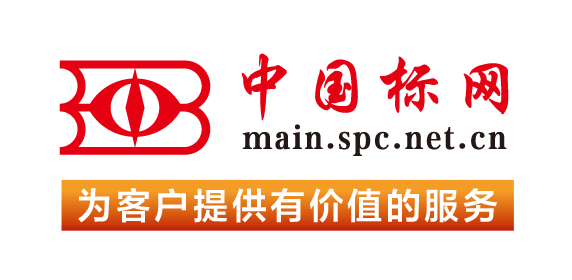【国外标准】 Standard Test Method for Unsteady-State Heat Transfer Evaluation of Flame-Resistant Materials for Clothing with Burn Injury Prediction
本网站 发布时间:
2024-02-28
开通会员免费在线看70000余条国内标准,赠送文本下载次数,单本最低仅合13.3元!还可享标准出版进度查询、定制跟踪推送、标准查新等超多特权!
查看详情>>
适用范围:
5.1 This test method is intended for the determination of a thermal performance estimate value of a material, a combination of materials, or a comparison of different materials used in flame-resistant clothing for workers exposed to combined convective and radiant thermal hazards.5.2 This test method evaluates a material’s heat transfer properties when exposed to a heat exposure at a constant value and specific duration. Air movement at the face of the specimen and around the calorimeter can affect the measured heat transferred due to forced convective heat losses. Minimizing air movement around the specimen and test apparatus will aid in the repeatability of the results.5.3 This test method accounts for the thermal energy stored in the exposed test specimen after the heat exposure has ceased. Higher values of thermal performance estimate ratings determined in this test associate to higher values of thermal (convective and radiative) energy protection against a predicted skin burn injury.5.4 This test method maintains the specimen in a static, horizontal position and does not involve movement except that resulting from the exposure.5.5 This test method specifies a standardized 84 ± 2 kW/m2 (2 ± 0.05 cal/cm2·s) exposure condition. Different exposure conditions have the potential to produce different results. Other exposure conditions representative of the expected hazard are allowed but shall be reported with the results along with a determination of the exposure energy level stability.5.6 This test method contains optional provisions for conducting certification testing against a prescribed thermal performance estimate value.1.1 This test method measures the non-steady state heat transfer through flame-resistant materials for clothing subjected to a combined convective and radiant heat exposure.1.1.1 This test method is not applicable to materials that are not flame resistant.NOTE 1: The determination of a material’s flame resistance shall be made prior to testing and done in accordance with the applicable performance or specification standard, or both, for the material’s end use.1.1.2 This test method accounts for the thermal energy contained in an exposed test specimen after the standardized combined convective and radiant heat exposure has ceased and is used to estimate performance to a predicted second-degree skin burn injury.1.2 This test method is used to measure and describe the response of materials, products, or assemblies to heat under controlled conditions, but does not by itself incorporate all factors required for fire hazard or fire risk assessment of the materials, products, or assemblies under actual fire conditions.1.3 The values stated in SI units are to be regarded as standard. The values given in parentheses are mathematical conversions to inch-pound or other units that are commonly used for thermal testing.1.4 This standard does not purport to address all of the safety concerns, if any, associated with its use. It is the responsibility of the user of this standard to establish appropriate safety, health, and environmental practices and determine the applicability of regulatory limitations prior to use.1.5 This international standard was developed in accordance with internationally recognized principles on standardization established in the Decision on Principles for the Development of International Standards, Guides and Recommendations issued by the World Trade Organization Technical Barriers to Trade (TBT) Committee.
标准号:
ASTM F2703-21
标准名称:
Standard Test Method for Unsteady-State Heat Transfer Evaluation of Flame-Resistant Materials for Clothing with Burn Injury Prediction
英文名称:
Standard Test Method for Unsteady-State Heat Transfer Evaluation of Flame-Resistant Materials for Clothing with Burn Injury Prediction标准状态:
Active-
发布日期:
-
实施日期:
出版语种:
- 推荐标准
- ASTM F3016/F3016M-19 Standard Test Method for Surrogate Testing of Vehicle Impact Protective Devices at Low Speeds
- ASTM F3019/F3019M-19 Standard Specification for Chromium Free Zinc-Flake Composite, with or without Integral Lubricant, Corrosion Protective Coatings for Fasteners
- ASTM F302-09(2021) Standard Practice for Field Sampling of Aerospace Fluids in Containers
- ASTM F3021-17 Standard Specification for Universal Design of Fitness Equipment for Inclusive Use by Persons with Functional Limitations and Impairments
- ASTM F3022-16e1 Standard Test Method for Evaluating the Universal Design of Fitness Equipment for Inclusive Use by Persons with Functional Limitations and Impairments
- ASTM F3023-18 Standard Test Methods for Evaluating Design and Performance Characteristics of Stationary Upright and Recumbent Exercise Bicycles and Upper and Total Body Ergometers
- ASTM F3026-14(2019) Standard Guide for Helicopter Inland Search and Rescue (SAR) Crew Chief
- ASTM F3027-18 Standard Guide for Training of Personnel Operating in Mountainous Terrain (Mountain Endorsement)
- ASTM F3033-16(2021) Standard Practice for Installation of a Single-Sized, Cured-In-Place Liner Utilizing an Inflatable Bladder for Resurfacing Manhole Walls of Various Shapes and Sizes
- ASTM F3034-21 Standard Specification for Billets made by Winding Molten Extruded Stress-Rated High Density Polyethylene (HDPE)
- ASTM F3035-22 Standard Practice for Production Acceptance in the Manufacture of a Fixed Wing Light Sport Aircraft
- ASTM F3036-21 Standard Guide for Testing Absorbable Stents
- ASTM F3038-21 Standard Test Method for Timed Evaluation of Forced-Entry-Resistant Systems
- ASTM F3043-15 Standard Specification for “Twist Off” Type Tension Control Structural Bolt/Nut/Washer Assemblies, Alloy Steel, Heat Treated, 200 ksi Minimum Tensile Strength
- ASTM F3045-21 Standard Test Method for Evaluation of the Type and Viscoelastic Stability of Water-in-oil Mixtures Formed from Crude Oil and Petroleum Products Mixed with Water
 购物车
购物车 400-168-0010
400-168-0010













